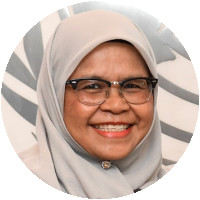How Covid-19 and Climate Will Transform Cities
A Devex Newsmaker Event with the Executive Director of UN Habitat
MARCH 10, 2022 - 10 a.m. ET | 4 p.m. CET | 6 p.m. EAT
WatchAbout the Event
Cities are the front-lines for battles against two of the most pressing global issues today: climate change and global health pandemics. The same concentration of people that makes cities vibrant centers of innovation and social development also leads to increased pollution and the rapid spread of viruses.
As the percentage of people living in urban areas grows, expecting to reach two-thirds by 2050, these challenges will only compound. Now is the time to take stock of our cities and where they are headed. How can — and should — multilateral development banks and development donors invest in the future of cities?
Join Devex President and Editor-in-Chief Raj Kumar for a conversation with UN-Habitat Executive Director Maimunah Mohd Sharif on how the COVID-19 pandemic and climate crisis will transform our cities. Sharif will also discuss the status of the 2016 New Urban Agenda and UN-Habitat reform as she enters her second term as executive director.
Watch
Schedule
10 a.m. ET
Opening remarks
• Raj Kumar, president and editor-in-chief, Devex
10:05 a.m. ET
One-on-One interview
Speaker:
• Maimunah Mohd Sharif, executive director, United Nations Human Settlements Programme
• Raj Kumar, president and editor-in-chief, Devex
10:35 a.m. ET
Fireside chat
• Moderator: Raj Kumar, president and editor-in-chief, Devex
10:55 a.m. ET
Closing Remarks
• Raj Kumar, president and editor-in-chief, Devex
Speakers

Raj Kumar
President and editor-in-chief, Devex
Raj Kumar is the founding president and editor-in-chief at Devex, the media platform for the global development community. He is a media leader and former humanitarian council chair for the World Economic Forum and a member of the Council on Foreign Relations. His work has led him to more than 50 countries, where he has had the honor to meet many of the aid workers and development professionals who make up the Devex community. He is the author of the book "The Business of Changing the World," a go-to primer on the ideas, people, and technology disrupting the aid industry.

Maimunah Mohd Sharif
Executive director, United Nations Human Settlements Programme
Maimunah Mohd Sharif is the executive director of the United Nations Human Settlements Programme, or UN‐Habitat. She was appointed by the secretary‐general, following an election by the General Assembly on Dec. 22, 2017. On Jan. 20, 2022, she was reelected by the U.N. General Assembly for a two-year term that ends on Jan. 19, 2024. Prior to her appointment as executive director of UN-Habitat, Sharif was mayor of the city council of Penang island, Malaysia. She was the first woman to be appointed as president of the Municipal Council of Seberang Perai in 2011. She led Municipal Council of Seberang Perai to achieve its vision of a “cleaner, greener, safer and healthier place to work, live, invest, and play.” She is a champion of Gender Responsive Participatory Budgeting to integrate gender perspectives into the governance process as a tool to mainstream gender into budgetary and development policy and planning. During her tenure, the Municipal Council of Seberang Perai was the first local authority to implement and achieve six quality-based management ISO certifications. Sharif began her career as a town planner at the Municipal Council of Penang Island in 1985. In 2003, she was promoted to director of planning and development, a position she held until November 2009. As director, she was responsible for the preparation of structure and local plans, and was directly involved in development control of Penang City projects and landscape development. She also led a team for the planning and implementation of the Urban Renewal Projects in George Town. In November 2009, she was entrusted as the first general manager to establish George Town World Heritage Incorporated and manage the George Town World Heritage Site which was inscribed by UNESCO in July 2008.